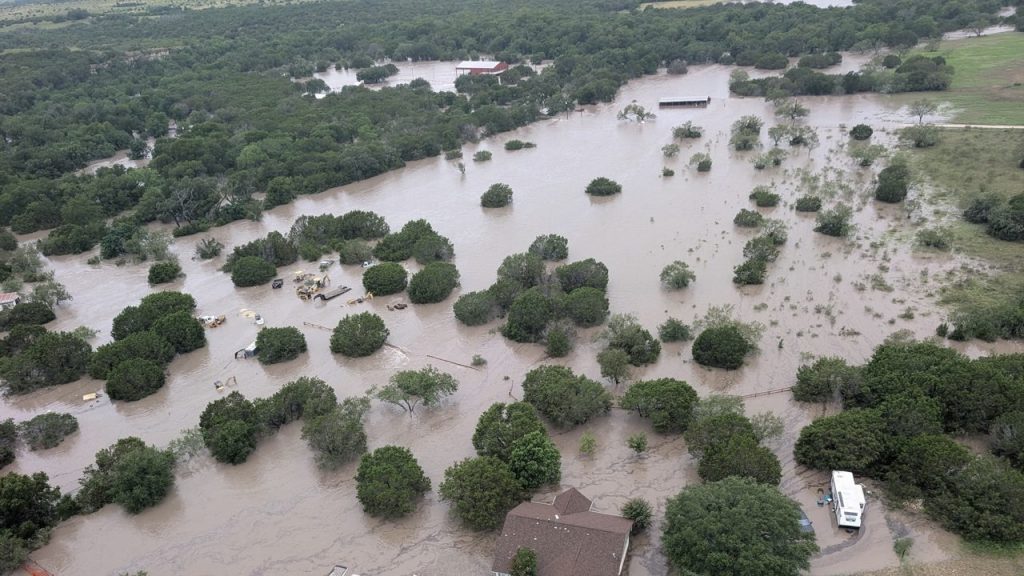A viral TikTok video of campers evacuating Camp Mystic in the devastating Texas flash flood while singing the hymn “Pass It On” shows how religion can help some through difficult times, said Mary Beth Werdel, director of spiritual integration and pastoral care programs at Fordham. Read more on how even those who normally are not spiritual can benefit.
Photos and videos of Camp Mystic after the central Texas camp was caught in a deadly deluge over the weekend are going viral. At least 27 children and counselors died after the nearby Guadalupe River became a mass torrent of water that surged over 26 feet in less than an hour on Friday.
As some campers from the 99-year-old nondenominational Christian summer camp for girls evacuated, they sang the words “I want my world to know/the Lord of love/has come to me/I want to pass it on” to stay calm. As the girls sang, waves crashed where water shouldn’t flow, tumbling through broken roads and structures turned inside-out.
The haunting video has gained over 700,000 views and thousands of comments, with many reactions embracing something fundamental to Camp Mystic: prayer.
These reactions are an important reminder of how religion can helps some people through difficult times, even for those who aren’t normally spiritual, according to Mary Beth Werdel, associate professor of counseling at Fordham University. Research links religion to positive outcomes after disasters, as engaging in faith helps people make sense of what’s just happened.
“Prayer as a coping mechanism is really useful,” said Werdel, who researches how religion leads us through stress and trauma. “Especially when other forms of coping are not available.”
For people who have seemingly lost everything in a near-biblical flood, reaching for hymn or prayer is an active medium for healing when other mechanisms, like therapy, aren’t easily accessible, Werdel said.
“Singing is a ritual,” she said. “Religion in many ways gives people a roadmap to follow, structure to follow, in a time when stress and trauma make things very chaotic.”
‘Religion doesn’t erase sadness’
The wide-ranging reactions online are an important reminder that everyone processes trauma differently. Not everyone finds peace through prayer right now. Some reacted to the scene at Camp Mystic by calling out flood warnings that came too late to save lives and decrying local climate change preparedness policies.
But it’s not about choosing one versus the other, Werdel said. “We can be hopeful and moved by people’s collective experience. And it can also be true that things can happen systemically … religion’s not going to stop the floodwaters.”
She added singing can be powerful, but some may find themselves asking, “What type of God would allow this to happen?”
“Allow that question to stay with us,” Werdel said. “Try not to find an answer right away … It’s OK to not have an answer.”
Werdel recommends working through questions like those with a counselor or therapist. “Religion doesn’t erase sadness [or loss],” she added. “But it can give you hope that loss isn’t the final reality.”

